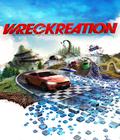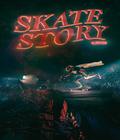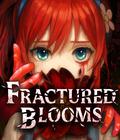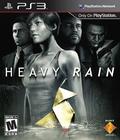To many gamers, Quick Time Events (QTEs) are one of the most frustrating "innovations" of the last console generation. Cut scenes were once a time to relax, put down your controller for a moment, and perhaps see some neat action, but now, they're another kind of gameplay where a single moment of inattention or wrong button press is more lethal than any boss could ever be. When one thinks of a game based around QTEs, one usually thinks of something like Dragon's Lair, which basically amounted to a movie in which the main character would occasionally die because the player didn't push a button. While there's certainly some appeal to this kind of game, it was a fairly binary situation: You either succeeded or failed, based on a single button press.
With titles like Dragon's Lair being some of the few examples of these sorts of games, it is no wonder that Heavy Rain has a difficult road ahead. In many ways, Heavy Rain isn't a game. It's a movie where you can alter what happens on-screen. Unlike Dragon's Lair or similar titles, it isn't a simple "succeed or die" challenge. The creators have called this new style of gameplay "Interactive Drama," and after playing through the game, it's hard to argue that Heavy Rain hasn't earned that moniker.
Heavy Rain is set in the near future, in the fall of 2011. A killer has been on the loose for the past few years, preying exclusively on young children. The victims are found drowned in rainwater, with an orchid on their chest and an origami paper doll in their hands. As such, their murderer has been dubbed the Origami Killer. Players take control of four different characters, each with a connection to the killer. Ethan Mars is a divorced father whose son died in a tragic accident two years before the story. His other son, Shaun, is the killer's next victim, and Mars must pass the murderer's series of sadistic tests to get his son back. Madison Page is a reporter who is investigating the murders and ends up caught in the middle during a chance encounter with Ethan. Norman Jayden is an FBI agent armed with amazing super-science who has been called in to catch the killer before Shaun Mars dies. The final character, Scott Shelby, is a private detective who has been hired by the families of the victims to find the Origami Killer.
At the moment, Heavy Rain is the closest you can come to playing a movie. The game is structured in an almost identical way to movies like "Se7en" and the "Saw" franchise, and there are more than a few callbacks to those films. When the scene changes, you move to a different character, and occasionally you'll even switch control of characters in mid-scene. The entire story feels like a fairly well put-together detective story, and it is surprisingly engrossing. The three male protagonists each do a good job of embodying a horror movie archetype. Ethan Mars is very much the unlucky everyman from the early "Saw" movies, while Jayden brings to mind the flawed policemen from stories like "The Bone Collector" or "Se7en." Shelby is the iconic hardboiled ex-policeman with a tragic past.
The sole exception might be Madison, who is more like the designated love interest than an actual character. Most of her scenes involve showering, stripping or taking care of a wounded Ethan. She has one or two interesting scenes, but nowhere near on the same level as the other characters, and it's a bit weird how often she ends up undressing. Discovering the motivations and history behind each character is quite interesting; they're not the most original lot, but it's much easier to connect with them over the course of a lengthy game than a two-hour movie. Heavy Rain is very much a game about the journey, not the ending.
Heavy Rain's only real problem is that while the journey is interesting and engaging, the ending leaves something to be desired. Spoiling any part of the game would sour the experience, so I'll try to be as vague as possible here. The eventual resolution of the Origami Killer plotline is rather unsatisfying and quite unsurprising. The game lays on the hints too heavily, and seems to depend on the idea that the player won't actually pay attention to certain things. This is reasonable for most stories, but considering that this is supposed to be a murder mystery and based around player interaction, it's disappointing that the solution is very obvious. There are also a few plot hooks that seem to go nowhere. There is downloadable content coming out that further explores some of the character motivations and backstory, but until that DLC is available, it's tough to tell if these plot hooks are something meaningful or just red herrings.
Heavy Rain resembles nothing so much as an old-school adventure game, and it's similarly easy to play. You guide your character around the environment by using the left analog stick to "aim" him or her and holding R2 to walk. It's a little awkward at first, but once you get used to it, it's fairly easy to play. To interact with objects in the environment, you perform a button press when you approach the object. Depending on what you're trying to interact with, you may have to press certain face buttons, move the analog stick in a certain way, or even shake the SixAxis controller in a specific direction. The actions required tend to correspond to what you're trying to do.
For example, opening a door requires you to move the analog stick over to the left and then downward, as if you were turning a doorknob. Kicking down that same door would require a strong downward thrust of the SixAxis. Some scenes require you to hold two buttons at once or rapidly pound a button, but they're relatively easy. The only real complaint is that it can sometimes be difficult to see what button or motion you need to make, especially if the camera zooms out. You can alter the camera during some scenes, but on all, and those with a small TV will have a devil of a time differentiating between the Square and Circle buttons.
Every so often, you'll encounter an action scene. These action scenes can occur without much warning and usually take the form of a fight or escape. Of all the elements in the game, these most resemble the dreaded QTEs seen in other games. Various buttons and controller motions will pop up on-screen. Successfully press the button, and your character will succeed in whatever he's trying to do, whether it's throwing a punch, jumping off a building or firing a gun. The trick that separates this from other games that use similar ideas is that failing a QTE here is not an instant failure. You may choose the wrong button and fail to dodge a punch, but that just means that your character gets jabbed in the face. You can even fail entire sequences and the end result is simply that your character gets beaten up. There are even some QTEs in which not succeeding is the way to go. If you're too quick on the button presses, you can accidentally shoot an innocent person or worse. However, not all QTEs are without serious consequences. Failure can lead to terribly injury or death for an NPC or the player character.
A good portion of your time in Heavy Rain is spent exploring environments and trying to find clues and information that lead to the identity of the Origami Killer. Depending on the character and the environment you're in, you'll have to deal with a variety of different situations. Some are fairly simple, such as exploring a crime scene and trying to find clues and evidence that lead to the killer's identity. Other scenes are more complex and involve very interesting set pieces. As mentioned, Ethan Mars is forced to undergo a series of "Saw"-like tests to find clues about his son's location, while Scott Shelby must deal with the aftermath of the Origami Killer's murders by consoling and helping the victims. Each environment is unique and interesting to explore, and I'm loathe to mention any more about the sequences in order to avoid spoiling them for people.
Not all sequences play out in a single way. Depending on the actions you take, there are lengthy sequences of gameplay that you'll never see unless you make a mistake. One sequence has Jayden arresting a criminal. If you do things right, it will be a quick arrest and you'll quickly advance through that game chapter. If you take your time, you'll come across important evidence and clues that you would have otherwise missed, and you'll see a lengthy action scene that is amongst one of the coolest in the game.
As mentioned above, certain scenes can result in death. Unlike most games, death doesn't lead to a continue screen. If a character dies in the story, he or she is considered dead as a doornail. The story line progresses without him or her, and the overall ending is different because of this. It adds an element of tension to know that a mistake can lead to a character's death. Of course, it's particularly easy to go back and change your choices. You can replay any chapter from the main menu, which allows you to "restart' the story from a section of your choice and modify the story from there. I find it more interesting to see the end result of your actions instead of trying to get a perfect game every time, since certain scenes only show up if you fail.
One complaint I have is regarding the tension. While a number of sequences are fairly tense, there are a few where, especially on a replay, it becomes apparent that the game won't let you deviate too far from the established plot. You can't take certain actions or fail certain sequences beyond a specific variation, even if it would make sense to. Particularly noteworthy is that certain characters will survive anything, even if they really shouldn't, simply because the plot requires them later. It drains a bit of tension from any sequences involving those characters and makes some of the QTE feel rather pointless. Fortunately, even the most pointless QTE has lots of interesting animations and dialogue, encouraging players to try to do well even if there is no specific punishment for failing. For a game designed to make the players feel the consequences of their actions, it is a little unsatisfying that you're sometimes railroaded away from natural consequences.
Heavy Rain is a really impressive-looking game. The characters are expressive and well-animated and, in many cases, look almost disturbingly realistic. The environments are interesting and varied, and the movie atmosphere continues throughout the entire game. Unfortunately, this means that when it fails, its failures hit it a lot harder than they might in another game. Clipping errors are really bad in a few places. One particular cut scene had Ethan and his ex-wife having a tearful conversation in the middle of a police station, only for police to literally walk through the characters again and again. I also saw a number of jerky animations and slowdowns, and sometimes the sound would cut out for no reason in the middle of a cut scene, only to return a moment later. These flaws are minor but do detract a bit from the experience.
Heavy Rain's biggest problem by far is the voice acting. Since it is a French-made game, the majority of the voice actors in Heavy Rain are Europeans attempting to play Americans. The end result is that a lot of the voice acting sounds awkward, as many of the actors are not capable of putting on a convincing American accent. Some of the actors do reasonably good jobs, but there are more than a few immersion-breaking sequences where you're drawn out of the game. A few of the lines also end up sounding like the actors didn't have proper context for them, with some characters' tone and emotions being very hard to read or flat-out inappropriate for the scene. Perhaps fittingly, the story plays out more naturally in the native French voice acting, but that might not be for everyone. The soundtrack, on the other hand, is quite solid. The music is perfect for setting the mood, and perhaps the only problematic element is that none of the music is particularly memorable outside of the context of the scene.
It is weird to refer to Heavy Rain as a game, insomuch as the gameplay elements are almost secondary to the experience. If judged simply on its game mechanics and story line, Heavy Rain might be a bit weak. Most of the action involves simple timed button presses, and the story is fairly clichéd and predictable. The creator-coined term "Interactive Drama" fits much better, and as far as that goes, Heavy Rain is a tremendous success. Playing Heavy Rain is like watching a movie where you can alter the actions on-screen. The gameplay elements are a bit simple, but it's impossible to deny that the level of interaction is just right to get you engrossed in what is transpiring on-screen. Even if the characters or plot are not the most original, it helps that you're able to control them. Instead of being annoyed when a character does something stupid, you can prevent him or her from doing it. Likewise, the feeling of frustration at a character's failure or joy at their success is magnified thanks to your interactions. Heavy Rain is more of an experience than a game, and as far as an experience goes, it does an impressive job and is truly unlike anything else on the market.
Score: 9.0/10
More articles about Heavy Rain











 Heavy Rain is a dark, immersive and emotionally-engaging experience; creating a noir-thriller where decisions are charged with importance and actions can have drastic and unforseen consequences.
Heavy Rain is a dark, immersive and emotionally-engaging experience; creating a noir-thriller where decisions are charged with importance and actions can have drastic and unforseen consequences.






















































